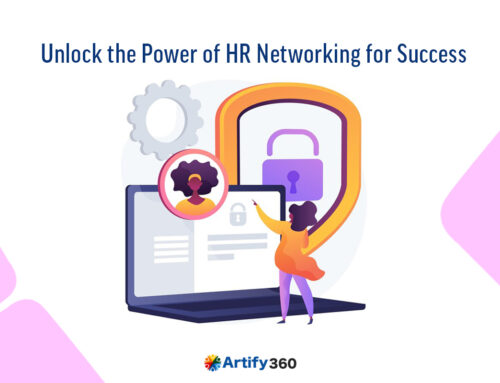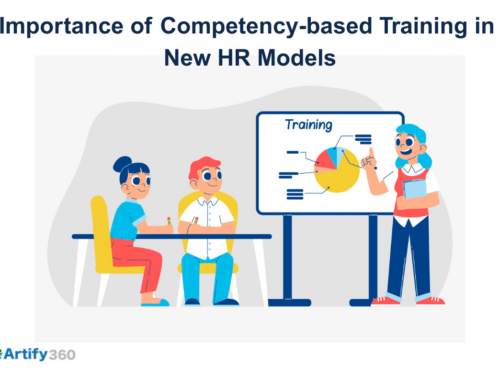Digitized systems are the need of the hour. They serve the significant purpose of maintaining your organizational functions in an upgraded format. It will help you perform according to the new-age marketplace requirements. The one core system that manages the top operational aspects of your organization is the HR domain.
Digital versions of HR solutions are the determining factor that helps change your gears to top efficiency mode. Integration models are necessary for any system to find the optimum application and create an impact on the current trends. This post deals with the implementation of integrations in an HR system. You will learn about the numerous pros and cons of integrated HRIS, HRMS, and HCM systems in the write-up.
The Meaning of Integrated HR Systems
The concept of an integrated HR, payroll, and accounting system means that you have a one-stop solution at your fingertips that takes care of all your HR needs. The workflow of each task and activity is included in the system and taught intending to act as a template for future target achievement priorities.
Integrated HR technology has strategically evolved over the years, giving it an air of commanding presence in all company scale types. Streamlining HR operations is the primary purpose behind its introduction to the professional levels. Customization is available in a digital niche, and the HR integration system is no stranger to the same.
All HR integrations start from general strategic planning and may extend up to compliance regulations and operational upgrades. Documentation is key in this digitized format, and it will help cover all future references. With the appropriate amount of time and cost considerations from the initial point itself, you can stay on top of the HR modules.
Strengths of Implementing Integrated HR System
The advantages and strengths your organization can derive by placing a dedicated HR integration system are as follows.
- Streamline HR processes
The one function that matters above all other HR features is the streamlining process. HR operations should follow a streamlined structure to receive the maximum benefits for the operations sector. Plus, it will ease the collaboration effects of the HR division.
- Data and information accuracy
Precise information is mandatory for organizations to function well in any work environment. You may feel like it’s a hassle to record and analyze all datasets within an organization. But it will add significant value to the business from a professional standpoint.
- Time and cost efficiency
In any company function – online or offline – the ideal thing to consider is time management. Add cost-cutting measures to this, and you are in for a surprise, as the optimum performance level will reward your niche abundantly.
- Flexibility
You can develop and portray a flexible work culture for dealing with HR tasks in the company. It is the setting up of an automated HR solution that enables this feature without compromising the values and mission of the organization. Flexibility is a model of analyzing which example illustrates integrated HR in the context of organizational operations.
- Ease of availability
If the HR system in use is an integrated platform, then the whole project will be easily available for activity access to the concerned resources. Interactions within the platform will also enable the software suite to perform according to the specific requirements laid out by the organization.
- Access to other integrations
Apart from HR, other divisions in the organization are similarly built to showcase either digitization or integration functions, or both. The benefit of having a contributing HR integration system is that it can help your organization integrate well with other domains like finance, retail, sales, marketing, etc.
- Self-driving the organization functions
For any function that occupies a key role in your organization, self-reliance and identity management is key. It can only be promoted with the assistance of digitization options. This is because when the system is digital, it will constantly reinvent its options for building an innovative portal.
- Quick-paced & future-proof service
When you consciously use HR technology for managing your organizational operations, the process will be quick. Adding templates to the mix will support the platform for future use. The optimum route to follow in this category is the direct application of digital tactics to all HR modules.
- Overall boost in HR efficiency
HR efficiency represents a mix of agile processes adopted by the company regarding the HR domain and the response of resources to the same. It should stay at a peak value at all times to ensure the condition of the organization is in perfect condition. Branding is also another factor.
- Guarantee of security & privacy in operations
HR operations demand safety and privacy terms while working for the business. Technology innovations can aid in guaranteeing security prospects for the organization. It is ideally managed with the help of integration platforms that take care of HR tasks.
Limitations of An Integrated HR System
Though not as prominent as the merits, a pivotal integrated HR solutions system shows certain drawbacks and limitations. They are discussed below.
- Higher setting-up cost
When you set up an HRMS integration system, the initial cost may be high. It will only happen if your organization is new to the platform integration. As for HR solutions, the ideal remedy is to build up a portal gradually to avoid incurring sudden costs.
- Complex to maintain without knowledge
The personnel taking charge of HR activities should have a bare minimum knowledge of how its implementation is going to happen. If you proceed with HR integration tasks without clearing the initial steps needed for learning about the automation system, then it could prove to be a problem for you and the working partners.
- May experience restrictions
Though defined templates govern the HR activity in organizations, you may still experience some sort of restraints related to how the system can work. A fully-fledged support system should be in place to act as a backup to all the actions in the HR domain.
- Risks related to the internet
The internet is a tricky place. Any digitized system can fall into the trap of potential issues that could cause harm to various degrees. In professional organizations, the biggest risk for HR departments may happen in online mode. It is penetrated to the HR system through digital processes.
- Standardization is not easy
Standard measures should be adopted to keep HR policies and frameworks in place. But it is not an easy ask when you are doing it for the first time. If your organization or industry is new to digital strategy adoptions, then create a valuable space within the system that will sustain the HR operations in collaboration with each other.
Should I Embrace An Integrated HR System? Artify 360 Has The Answer
The short answer is yes. When opting for optimizing areas of integrated HR support, the highlight is to adopt a modernized version of the core HR payroll software system. It should be open to personalization to any scale and should provide a stable platform for its users to feel comfortable with the solution.
It is the phase where Artify 360 cloud HR software comes in to answer your call. A full-fledged HR software system capable of managing all necessary core integrations in a digital suite, Artify 360 is all you need to build an interactive operations solution for the entire organization.






